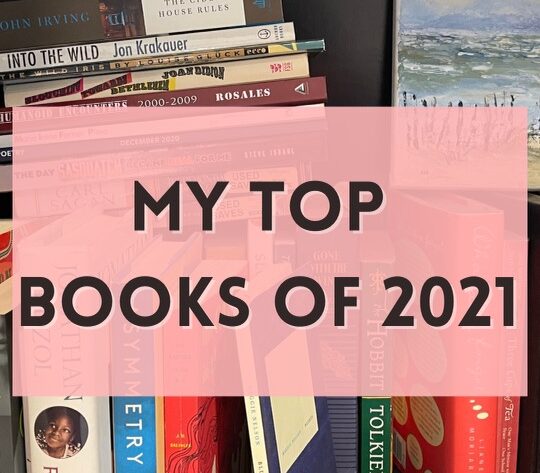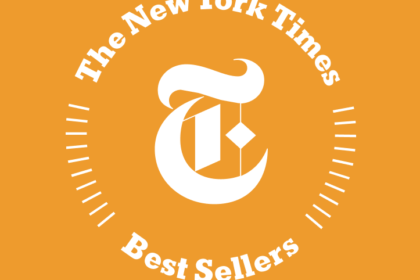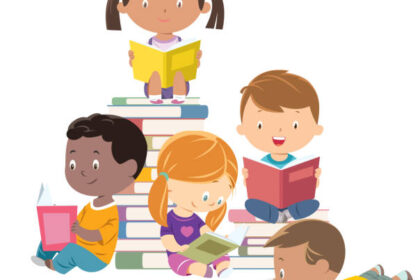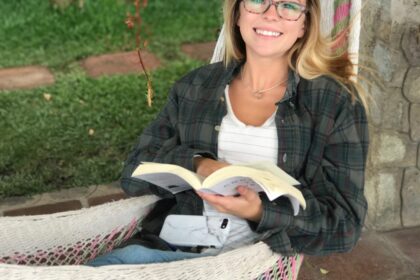I miss quarantine.
Okay, not really. I don’t miss most of it. But I do miss the space it created in my life for reading.
Last year, in 2020, I read 48 books outside of school – my most ever in one year. I felt like the coolest little bookworm in the world! I miss those ethereal mornings my brother and I spent in our living room, two minds entrenched in our separate books, but together in space, joined by a common love of words. I miss the beach reading, the outside reading, the bedtime reading, the morning meditation reading. In those months, reading was an activity that happened three times a day, at the very least.
This year did not look like that for me, and I’m learning to be okay with that.
This year, most of my reading occured for either school or work, though I did carve out time to read “for pleasure” whenever I could. But I read less. Significantly less.
I have read 34 books so far this year – twelve of which were for work, thirteen of which were for school, and nine of which were purely for pleasure. This has bothered me for weeks, and truthfully, I have dreaded writing this post for precisely that reason. That ratio was really hurting my bookworm pride.
I thought my lack of pleasure reading this year made me a bad reader, meant that I forgot to prioritize something that brings me joy.
But the more I think about it, the more I realize that the joy in my reading practice did not suffer this year, not in the slightest. This year, the distinction between “for pleasure” reading and “for school” or “for work” reading became blurry. I was assigned amazing books, tasked with reviewing powerful manuscripts, guided through classics with new eyes, and it was an activity full of pleasure.
This year, all reading became reading for pleasure.
This year, I realized that these distinctions I insisted upon making were not helpful for my reading practice. In the year following a global pandemic, thrusted abruptly into an internship and a return to in person classes, I managed to read 34 books, and I think that’s something to celebrate. Who cares why I read them?
I discovered some new favorite authors, explored new genres, expanded my interests, and learned a lot in the process.
Last year, I posted My Top Books of 2020 (which has since been moved from my old blog) the week of Thanksgiving, so I figured I’d do the same this year. I should reiterate that these books are not the critically acclaimed best books of 2021, and these books were not necessarily all published in 2021.
The books listed below are simply the books that changed me this year, the books that have stayed with me, and the books that brought me the most joy.
Without further ado, here are my top books of 2021, in no particular order:
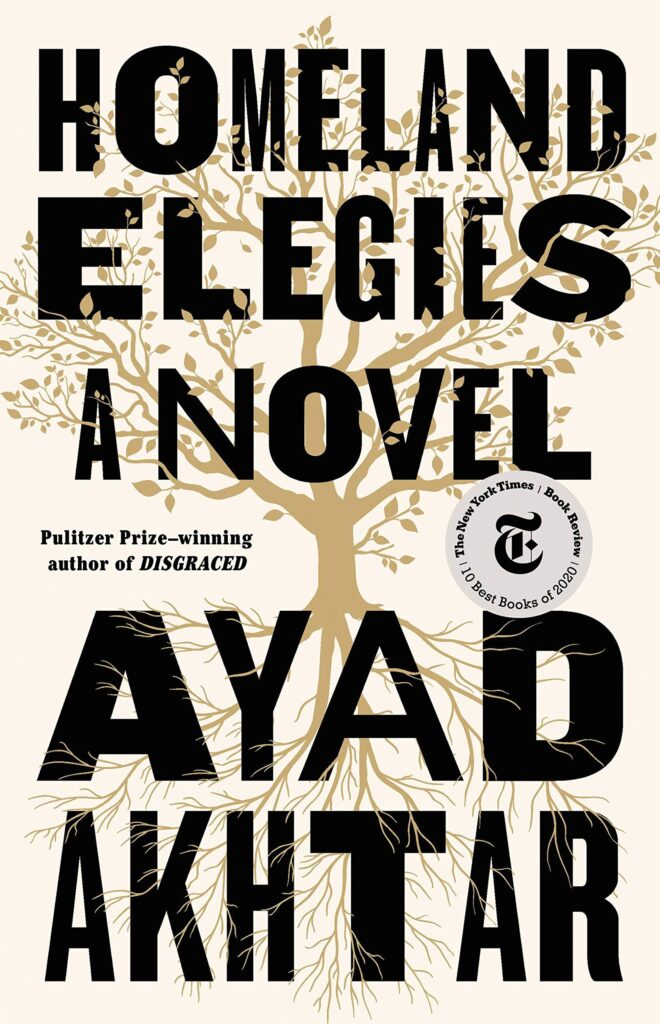
Homeland Elegies – Ayad Akhtar
“A day spent reading is not a great day. But a life spent reading is a wonderful life.”
“The established majority takes its we-image from a minority of its best, and shapes a they-image of the despised outsiders from the minority of their worst.”
Homeland Elegies was the first book I read this year, and I finished it on a beautiful snowy morning in Montana. Homeland Elegies, one of the NYT chosen best books of 2020, is a strikingly honest and authentically human portrait of moving through the world as a Muslim in a post 9/11 America. It is full of political complexity, identity reckoning, generational dialogue, and a dream of national belonging that permeates every page.
It reads as autofiction, often difficult to distinguish what is fictionalized and what is true to the authors experience – calling to question whether this distinction in literature even matters. It is a book about writing, about art, about the ability of words to both divide and separate us.
Akhtar is a gifted storyteller, with razor sharp narration coupled with intensely lyrical poetics. I admired his craft greatly, and this was one of the great joys of this book.
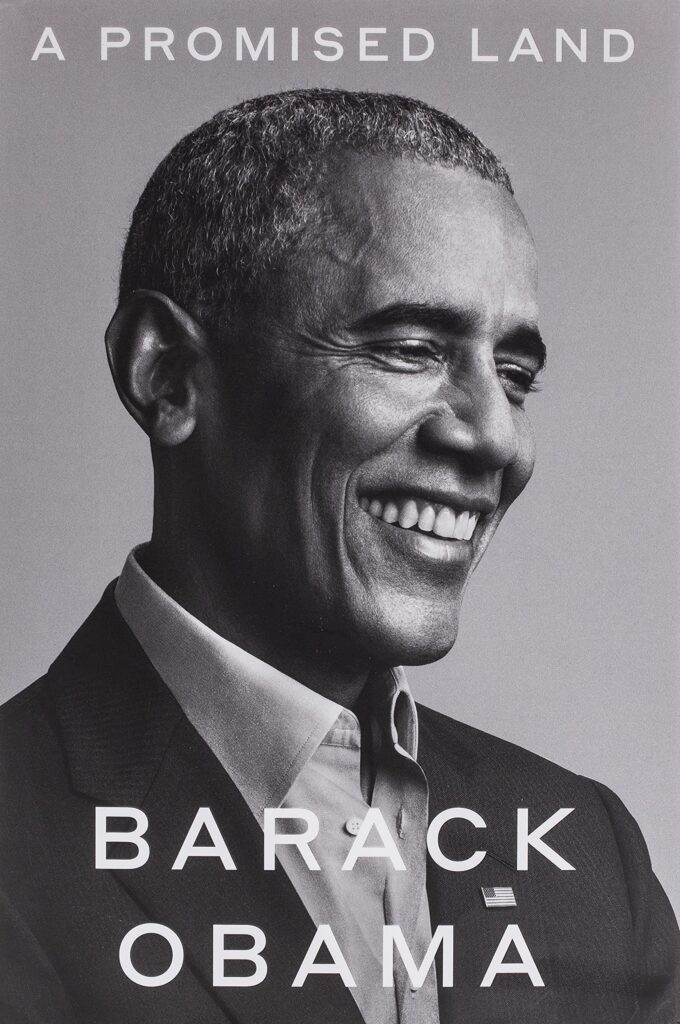
A Promised Land – Barack Obama
“To be known. To be heard. To have one’s unique identity recognized and seen as worthy. It was a universal human desire, I thought, as true for nations and peoples as it was for individuals.”
“And so the world watches America—the only great power in history made up of people from every corner of the planet, comprising every race and faith and cultural practice—to see if our experiment in democracy can work. To see if we can do what no other nation has ever done. To see if we can actually live up to the meaning of our creed.”
After devouring Michelle Obama’s memoir in 2019, I was anxiously awaiting the words of Barack Obama. Granted, I have my quarrels with Barack Obama as a politician and as a president, but as a writer, I admire him greatly, and even more so after reading A Promised Land.
This autobiography takes the reader briefly through the childhood and adolescence of Obama, into his days of Chicago organizing and falling in love with Michelle, and then into his sudden catapult into United States politics. The first of two installments, A Promised Land walks the reader through most of his first term – from the campaign, to the 2008 financial crisis which he inherited, to the affordable care act, to the BP oil spill, and ending with the assassination of Osama Bin Laden.
What stood out to me most, I believe, was the overwhelming presence of a writer’s sensibility in Obama’s voice. He has a way of emphasizing little details that make any picture seem to appear in 3D – nibbling on Malia’s toes when she was a baby, wrapping a towel around his lap in his grandfather’s car after a long day at the beach in Hawaii, insisting that the butlers in the white house swap out their tuxes for more casual clothes, Sasha’s request that her daddy save the tigers because after all, he was the president. Many details such as these linger with me, and his ability to render a scene vivid and real was impressive for a career politician.
Interestingly, this book is not a list of triumphs, self gratifications, and successes (as many presidential memoirs are). Instead, it’s a book seething with self doubt, with questions. Barack Obama tells the story of his time in office with such candor, compassion, and self analyzation that the tone comes across so ordinarily human.
Politics aside, this was an impressive work of literature – showcasing a writer that thinks deeply, cares deeply. He is honest about his shortcomings, his regrets, his motivations. I definitely recommend this book, no matter which side of the political aisle you may fall on.
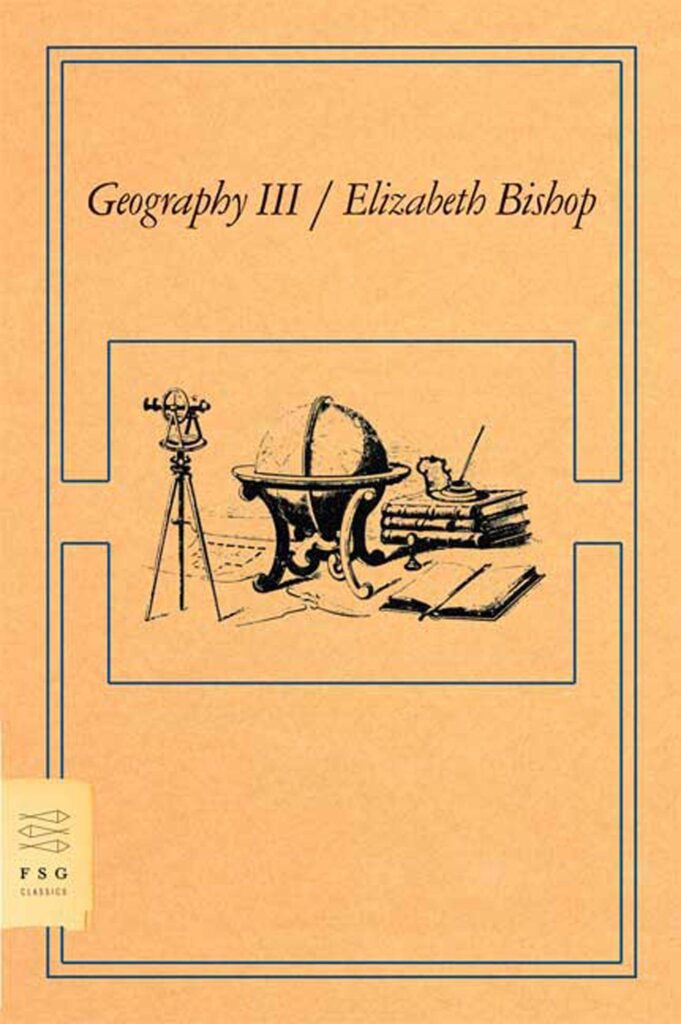
Geography III – Elizabeth Bishop
“I often gave way to self-pity.
“Do I deserve this? I suppose I must.
I wouldn’t be here otherwise. Was there
a moment when I actually chose this?
I don’t remember, but there could have been.”
What’s wrong about self-pity, anyway?
With my legs dangling down familiarly
over a crater’s edge, I told myself
“Pity should begin at home.” So the more
pity I felt, the more I felt at home.”
I rarely read poetry collections in their entirety, and it’s perpetually on the list of things that I want to do more often. One beautiful spring day, I sat down by a pool and read the entirety of Geography III, and it was gorgeous (the book and the experience, that is).
Elizabeth Bishop’s poetry in Geography III is so entirely accessible, so perfectly crafted, and so intriguing that I could not get enough. Geography III illustrates Bishop’s talent for description of physical space, painting beautiful images out of beautiful words.
A New York Times review, authored by Herbert Leibowitz, describes Geography III in the following way:
“Whenever we grow weary of the self‐regarding jostle, the coercive intimacy, of confessional poetry and the violence of our public life, we turn with pleasure to Bishop’s poems as to a shelter. Bishop has simply pulled down all vanity: the reality of what or whom she sees is never extorted by the ego, just accepted in its unfathomable and equivocal otherness. A cool light bathes the objects that come before her eye, or her mind’s eye—armadillos, roosters, sandpipers, coves, monuments—which she registers with the imaginative exactitude of a mapmaker.”
Geography III reminded me that poems deserve a place in my reading practice too, and I still frequently recite lines of “One Art” to myself.
Here comes the Jane Austen obsession. Are you ready?
In the Spring of 2021, I took an entire English course on Jane Austen. In that class, I read every word that Jane Austen ever wrote – all six novels, the shorter stories and novellas, and personal letters. And I loved every second. I couldn’t get enough. Ask any of my friends and they will tell you that I could not shut up about Jane Austen that semester. I still can’t shut up about Jane Austen. I could easily have put all six novels on my best books of the year, but I’ll spare you and choose my top three.
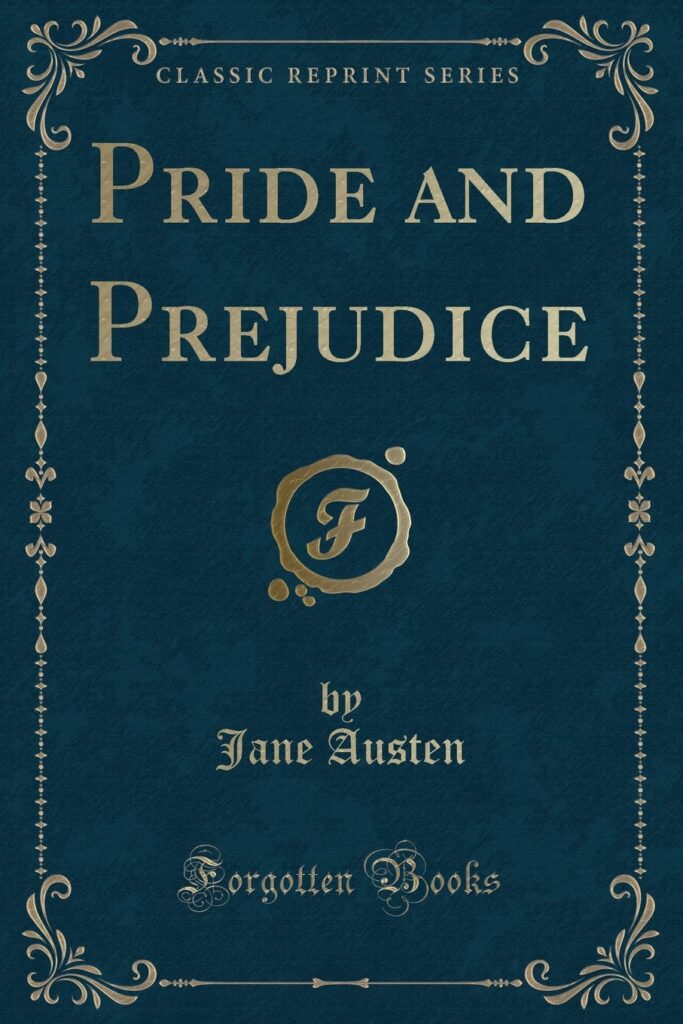
Pride and Prejudice – Jane Austen
“I declare after all there is no enjoyment like reading! How much sooner one tires of any thing than of a book! — When I have a house of my own, I shall be miserable if I have not an excellent library.”
“What are men to rocks and mountains?”
Ugh. Where to even begin! I previously read Pride and Prejudice as a pretentious seventh grader, but so much of it went over my head at the time.
As such, on my second read, I felt like I was meeting the Bennetts for the first time. I swooned over Mr. Darcy and Lizzie Bennett equally.
The story follows the main character, Elizabeth Bennet, as she deals with issues of manners, upbringing, morality, education, and marriage in the society of the landed gentry of the British Regency. Balls, marriage proposals, fights, confessions of love – it’s every hopeless romantics dream.
And the adaptations are also a dream! The Kiera Knightley version from 2005 is my personal favorite, and I have watched it more times than I am proud of in the past six months. Here’s a sneak peak:
On the first day of the Jane Austen class, my professor stated that “no Jane Austen novel is perfect, but there will be one that’s perfect for you.”
Pride and Prejudice was perfect for me (though I have to admit I hoped my perfect book would not be the most well known one, but alas). Elizabeth Bennett is a heroine who lingers long in my heart and in my mind, and the ability of this book to insert a reader so entirely into its story was quite powerful. I’ve never wanted to be British regency so badly, and there is an interesting emphasis on literature as a love language that I wrote a paper on.
If you’ve never read this classic, this is your sign.
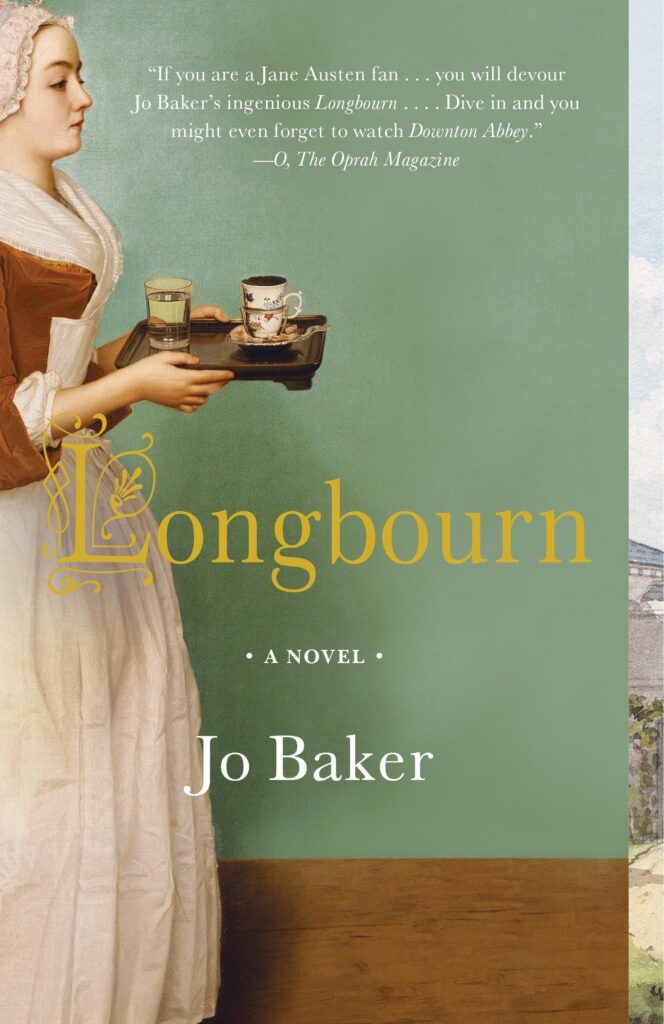
Longbourn – Jo Baker
“Perhaps it was not an easy thing, to be so entirely happy. Perhaps it was actually quite a fearful state to live in–the knowledge that one had achieved a complete success.”
“It was a thought, that. Not to attach yourself to a man, but to confront instead the open world, the wide fields of France and Spain, the ocean, anything. Not just to hitch a lift with the first fellow who looked as though he knew where he was going, but just to go.”
One of the main criticisms of Jane Austen’s work is the elitist nature of the stories – they focus on rich, white, noble people, while rendering invisible the labor involved in sustaining their lifestyles. Jo Baker addresses that silence, and she renders the labor visible.
Longbourn was first book in a long time that gave me that magical, childlike sensation of disassociation that always makes me think of reading Harry Potter for the first time. I was engrossed, obsessed, living between the lines.
Longbourn is a modern retelling of Pride and Prejudice that places a Bennett family housemaid as the protagonist – telling the story from behind the curtain. In many ways, the works of Austen cause the working class and the servantry to disappear. Jo Baker in Longbourn reinserts these people into the story while also calling attention to their original absence, and she makes them the center of this universe. Mr. Darcy is a minor character (which seems blasphemous, right??), and yet, Jo Baker creates a narrative you can’t help but love as much as the original.
Any lovers of Jane Austen MUST read this one!

Emma – Jane Austen
“I cannot make speeches, Emma…If I loved you less, I might be able to talk about it more. But you know what I am. You hear nothing but truth from me. I have blamed you, and lectured you, and you have borne it as no other woman in England would have borne it.”
“I do suspect that he is not really necessary to my happiness.”
If Pride and Prejudice holds my favorite heroine, Emma takes the cake for my favorite male love interest. Mr. Knightley’s confession of love is breathtaking, and certainly something only a woman could write.
When writing Emma, Austen wrote that she was writing a book “with a heroine who no one but herself would like”. True, a lot of people do not like Emma Woodhouse, but I found her quite charming and relatable, with all of the teenage naïveté we have all experienced. Emma is a novel about hubris, romantic misunderstandings, class mobility, and all things Georgian Gentry life.
Emma Woodhouse makes mistakes over and over again, and frequently, I wanted to shake her into some sense. But I was reminded that I too make many mistakes at twenty one, but luckily, I don’t have to consider marriage at the same time. Her stakes were a little higher! Thank God I exist nowadays.
Emma was such a joy to read, and the 2020 adaptation is the most aesthetically beautiful movie I have ever seen. Checkout the trailer below!
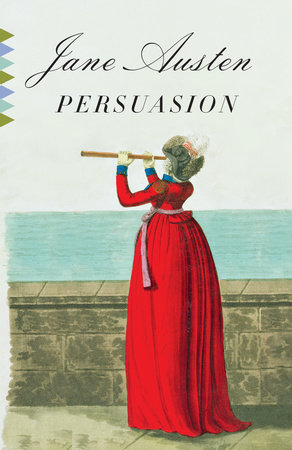
Persuasion – Jane Austen (last one I promise)
“I hate to hear you talk about all women as if they were fine ladies instead of rational creatures. None of us want to be in calm waters all our lives.”
“Let us never underestimate the power of a well-written letter.”
Persuasion, Jane Austen’s final completed novel, was published posthumously in 1818, but is set in 1814. As the only Austen novel to pay this close attention to time and space, these dates are of the utmost importance.
In 1814, the timeframe of the narrative, there was a false peace to the Napoleonic wars in which Napoleon was in hiding. As such, the audience of this novel (published four years later), would have known this to be a false peace, though the characters in the narrative are entirely unaware.
Persuasion follows the lives of the Elliott family, a gentry family full of self-important figures, and eventually focalizes through Anne Elliott, the middle child. The novel addresses topics that earlier Austen had not: class mobility due to naval prestige, European warfare, and a rapidly changing social structure due to the Napoleonic wars.
My definitive favorite of the six Austen novels, Persuasion is seeping with a complex narrative voice and three dimensional characters and love and a perfect narrative arch. I loved this one so dearly.
Also, has another legendary love confession:
“I can listen no longer in silence. I must speak to you by such means as are within my reach. You pierce my soul. I am half agony, half hope. Tell me not that I am too late, that such precious feelings are gone forever. I offer myself to you again with a heart even more your own than when you almost broke it, eight years and a half ago. Dare not say that man forgets sooner than woman, that his love has an earlier death. I have loved none but you.”
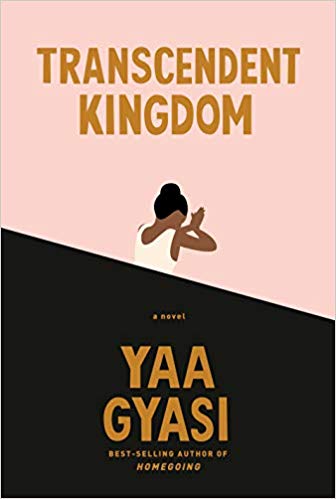
Transcendent Kingdom – Yaa Gyasi
“It took me many years to realize that it’s hard to live in this world. I don’t mean the mechanics of living, because for most of us, our hearts will beat, our lungs will take in oxygen, without us doing anything at all to tell them to. For most of us, mechanically, physically, it’s harder to die than it is to live. But still we try to die. We drive too fast down winding roads, we have sex with strangers without wearing protection, we drink, we use drugs. We try to squeeze a little more life out of our lives. It’s natural to want to do that. But to be alive in the world, every day, as we are given more and more and more, as the nature of “what we can handle” changes and our methods for how we handle it change, too, that’s something of a miracle.”
After obsessively reading Gyasi’s first novel Homegoing last summer, I couldn’t wait to get my hands on Transcendent Kingdom.
This stunning novel is written in a stream of consciousness style, following the internal monologue of Gifty, a pHD neuroscience student navigating mental illness, grief, religion, and racism in America. Her life’s work is devoted to uncovering not only the how and where addiction occurs within the brain, but also the why – she wants to know why we as humans are drawn to things that risk our lives in the name of momentary pleasure.
Truthfully, I have not related to a protagonist as deeply as I related to Gifty in a very, very long time. Often, Gyasi seemed to be tapping into my brain, gaining access to the thoughts I am terrified to speak out loud. Transcendent Kingdom was one of those books that is hard to read with a pen in your hand, for every word was so abounding with beauty, so perfectly crafted, so powerfully composed.
Though the plot of this novel is pretty nonexistent, it is entirely worth reading, as it paints an accurate description of human psychology in a way that few books successfully accomplish.
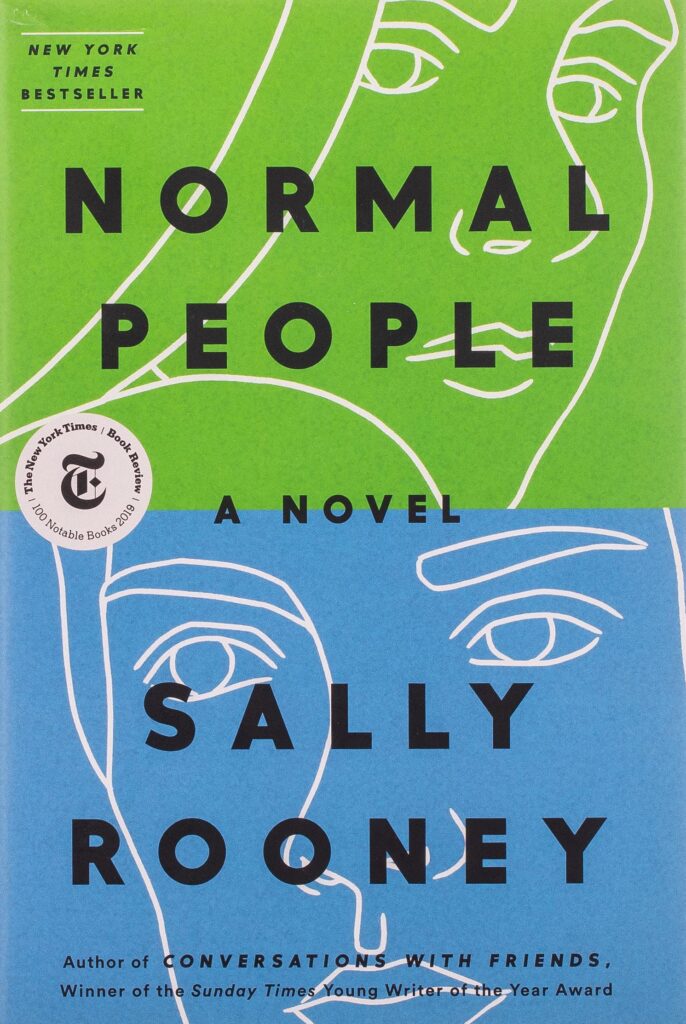
Normal People – Sally Rooney
“Marianne had the sense that her real life was happening somewhere very far away, happening without her, and she didn’t know if she would ever find out where it was or become part of it.”
“I’m not a religious person but I do sometimes think God made you for me.”
I’ve talked previously about my transition into Sally Rooney fandom. I started as a precocious English major who thought popular books had no literary merit, and I ended with a new favorite author.
Rooney’s second book, Normal People, was released less than a year after Conversations with Friends (and was adapted into a wildly popular television series in 2020, available on Hulu).
Normal People emerged as Rooney’s more mature second novel, exploring love across social classes and the effects of late capitalism with unmatched wit, humor, and nuance. The characters in Normal People were, to this date, Rooney’s best curated – authentic, three dimensional, flawed, and lovable.
I read Normal People as it demands to be read: in one sitting. After finishing it, I certainly knew that I had been wrong about Sally Rooney. I may not have been an ardent fan quite yet, but I could not dismiss her genius. There was a certain magnetism to her prose – something that kept me coming back. Something that lingered after I had put the book back on the shelf.
Something that lasted.
Something about Rooney just makes my heart ache the entire time I’m reading, and I CRIED at the end. I haven’t full blown baby-cried at a book in years. And the Hulu series is incredible. Here’s a trailer:
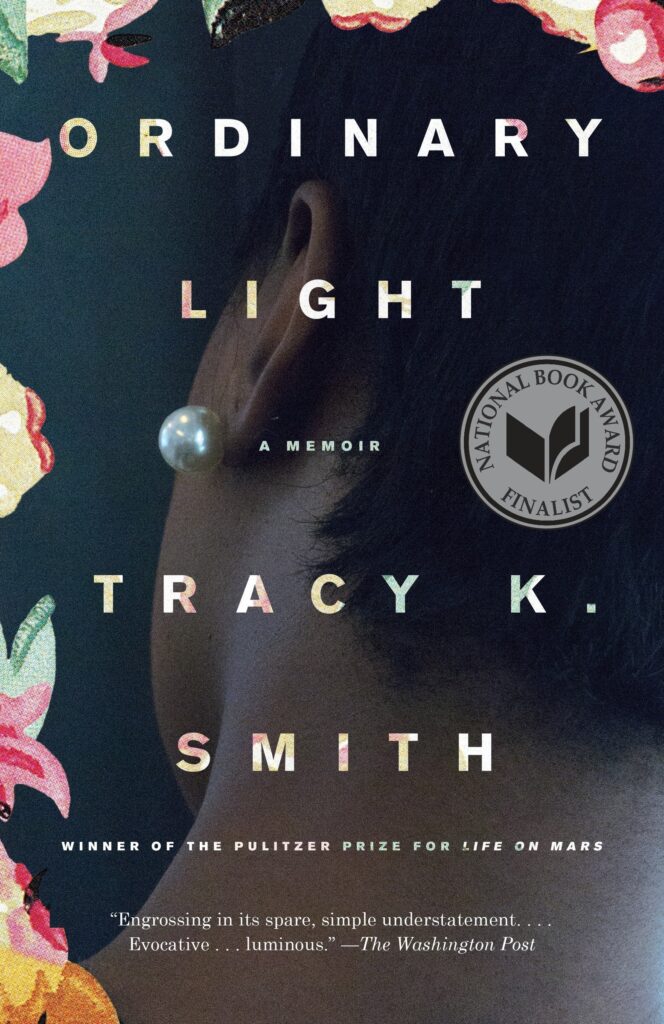
Ordinary Light – Tracy K. Smith
“Wasn’t it strange that a poem, written in my vocabulary and as a result of my own thoughts or observations, could, when it was finished, manage to show me something I hadn’t already known? Sometimes, when I tried very hard to listen to what the poem I was writing was trying to tell me, I felt the way I imagined godly people felt when they were trying to discern God’s will. “Write this,” the poem would sometimes consent to say, and I’d revel in a joy to rival the saints’ that Poetry—this mysterious presence I talked about and professed belief in—might truly be real.”
“I shut my ears, averted my eyes, turning instead to what I thought at the time was pain’s antidote: silence. I was wrong… Silence feeds pain, allows it to fester and thrive. What starves pain, what forces it to release its grip, is speech, the voice upon which rides the story, this is what happened; this is what I have refused to let claim me.”
Previously reviewed on my blog, Ordinary Light has cemented itself as one of the best books I read in the past year.
Tracy K. Smith’s Ordinary Light is a beautiful memoir grappling with her the author’s life before, during, and after the death of her mother. Incorporating an impressive honesty with self, an incredible amount of self compassion, and truly marvelous lyrical prose, Ordinary Light was a book seething with beauty, authenticity, and raw emotion.
Ordinary Light is a memoir that does not shy away from tragedy. Instead, it moves towards it with open arms, embracing heartache as a feat of human life. In Ordinary Light, Smith grapples with the period of her life from middle school to college, navigating questions of faith, desire, belonging, race, and grief.
After being poet lariat of the United States, Smith turned to prose to unpack the complex emotions she still held as a result of her mother’s death. When Smith became pregnant, she wanted a way to convey to her daughter all that her mother, and her mother’s mother before that, had imprinted onto her life. She wanted to document a legacy, a legacy of complex identities that her unborn daughter was being born into.
Cannot recommend enough, especially at a time right now, where we are all learning to live with you tragedy daily. It allowed me to see that beauty is all around us, even in times of tragedy.
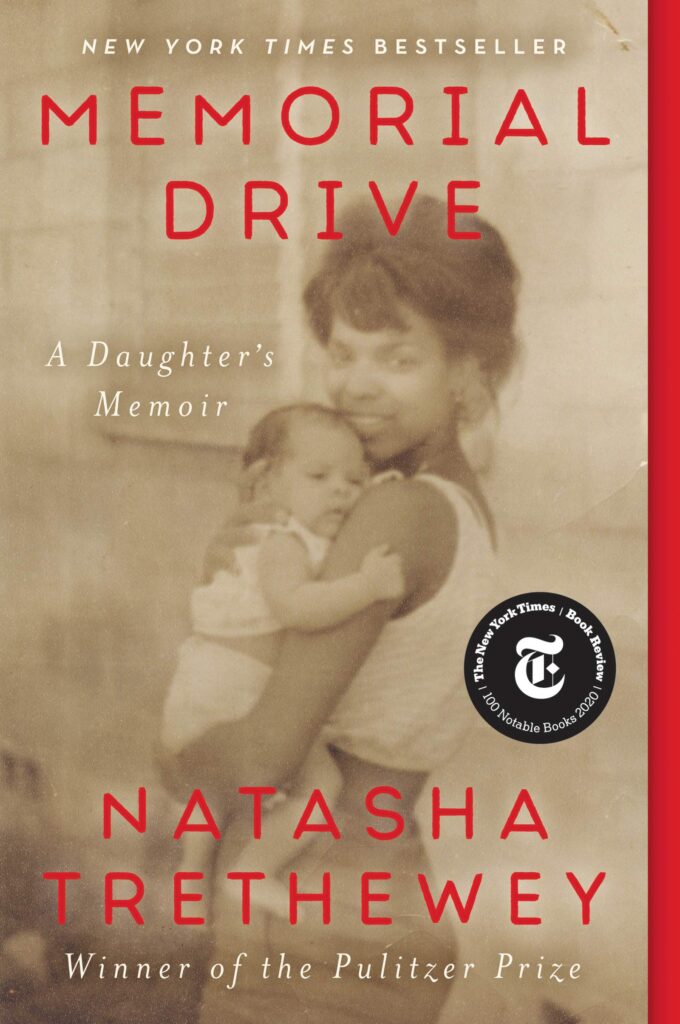
Memorial Drive – Natasha Tretheway
“Of course, we’re made up of what we’ve forgotten too, what we’ve tried to bury or suppress. Some forgetting is necessary and the mind works to shield us from things that are too painful; even so, some aspect of trauma lives on in the body, from which it can reemerge unexpectedly.”
“What matters is the transformative power of metaphor and the stories we tell ourselves about the arc and meaning of our lives.”
Also previously reviewed on my blog, the heartache that Memorial Drive left me with has not subsided. Few times in my life have I read a book so emotionally effective.
Natasha Tretheway’s Memorial Drive was not a read for the faint of heart – it is tragic, heartbreaking, painful, and truthfully, probably should have come with a trigger warning. This is not a book I would have done well with in my less mentally stable days. But hey, if your serotonin levels are feeling relatively stable and your empathy may need some building, Memorial Drive might just be the book for you.
In this memoir centered around profound trauma, Tretheway asserts that remembering the past is necessary to existing in the present. She consistently constructs story around the central loss, makes narrative in hindsight in order to more fully understand an elusive trauma she spent much of her adult life attempting to forget. In the murder of her mother, Tretheway was denied agency over her life. In the writing of this story, Tretheway is attempting to reclaim that agency.
Memorial Drive argues that by reexamining the past in the context of the present, we may be allowed a path forward.
To heal from our trauma, we must construct and tell stories about it.
With impressive aptitude in dialogue, metaphorical language, sonic resonance, and evocation of authentic emotion, Memorial Drive left me in tears. It broke my heart. I felt the pain of the author, and I felt it as my own.
Though a tragic read, I would read it again and again, for Memorial Drive could truly be marketed as a How To Grieve Manual. It taught me things that I did not know I needed to hear, and those lessons will stay with me long after the book has returned to my shelf.
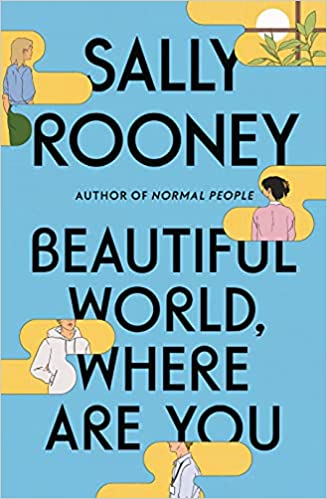
Beautiful World, Where Are You? – Sally Rooney
“Most of our attempts throughout human history to describe right and wrong have been feeble and cruel and unjust, but that difference still remains – beyond ourselves, beyond each specific culture, beyond every individual person who has lived or died. And we spend our lives trying to know that difference and live by it, trying to love other people instead of hating them, and there is nothing else that matters on this earth.”
“And were they aware, in the intensity of their embrace, of something slightly ridiculous about this tableau, something almost comical, as someone nearby sneezed violently into a crumpled tissue;… as life in its ordinariness and even ugly vulgarity imposed itself everywhere all around them? Or, were they in this moment unaware, or something more than unaware – were they somehow invulnerable to, untouched by, vulgarity and ugliness, glancing for a moment into something deeper, something concealed beneath the surface of life, not unreality but a hidden reality: the presence at all times, in all places, of a beautiful world.”
As I previously mentioned, Beautiful World, Where Are You? was my first five star read of the school year – and it may just be the very best book that I have read this year. This book found me just when I needed it to.
I stayed up late reading, foregoing movie nights with my roommates and opting out of nights out with friends. I procrastinated my homework while reading. At one point, I was fully walking down Broad Street, in the rain, reading the book under the safety of my umbrella as I walked across a crosswalk. I was that desperate for this narrative.
I stole time to get through Beautiful World, carved time out of my all too busy life to spend with this text.
The cast of characters includes a pissed off celebrity, a grumpy blue collar worker, a victim complex, and a creepy Catholic. Quite the set up.
Beautiful World, Where Are You centers around the sexual and emotional entanglements of the two female best friends, Alice (with Felix) and Eileen (with Simon). The whole plot consists of these four protagonists desiring one another, deluding one another, getting together, and breaking apart – with the two women unpacking it all in long-winded, highly intellectual emails to one another. That’s it. That’s the plot.
Beautiful World, Where Are You, at its core, asks its readers how we are to exist, love, and find beauty in a world so hell bent on systemic collapse? What is the point of loving at all if the world is going to shit?
Hell if I know.
But to this question, Rooney answers that beauty, love, and art are quite literally the only things we can do in the face of destruction.
We must seek and create the beauty in the world, we must enact agency in rendering the world beautiful.
Centered around mildly annoying, economically well-off characters frequently making questionable (and sometimes downright terrible) decisions while navigating love, loss, mental health, sexuality, and identity, Sally Rooney’s Beautiful World, Where Are You does for 2021 what Jane Austen’s Emma did for 1815.
As a Jane Austen fanatic, perhaps this is why I loved this text so much. It felt familiar, it felt like Emma, but written for me – a 21 year old woman navigating a world hell bent on destroying itself.
Excellent in language, form, dialogue, and style, this novel had me in wrapped around its finger from beginning to end.
That’s it. That’s the list.
I read a lot of Jane Austen. I read some memoirs. I read some poetry. I read some fiction and some nonfiction. I read a little bit of everything this year, and I think that I am a better reader because of it. And it was all reading for pleasure.
